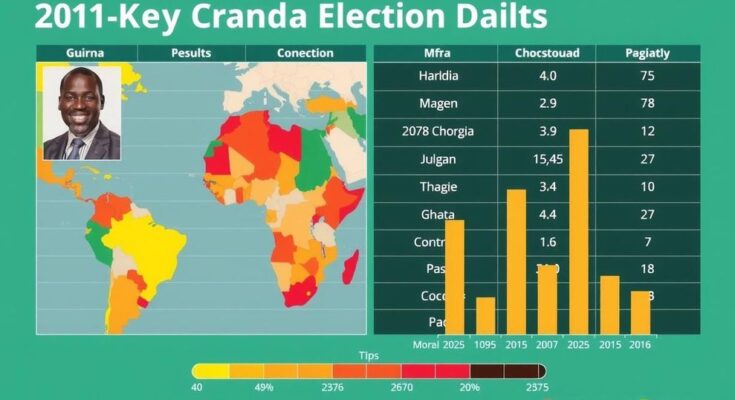The 2024 Ghana elections resulted in a defeat for the ruling NPP led by Nana Akufo-Addo and Dr. Bawumia, who failed to secure support amidst economic woes, high inflation, and unemployment. John Mahama of the NDC emerged victorious, reflecting widespread public discontent with current governance. The election results align with a growing trend in Africa where ruling parties lose power due to economic crises and opposition strength.
The recent 2024 elections in Ghana have brought a significant shift in the political landscape as the ruling New Patriotic Party (NPP), led by President Nana Akufo-Addo and Vice President Dr. Mahamudu Bawumia, faced defeat against former President John Mahama of the National Democratic Congress (NDC). This unwelcome outcome for the NPP, which had governed for eight years, was heavily influenced by widespread public dissatisfaction stemming from economic hardships, high inflation, unemployment, and scandals associated with governance. Economic challenges included Ghana’s 21-year high inflation rate at 54% and increased public debt exceeding $55 billion, prompting the government to seek help from the International Monetary Fund (IMF) for a $3 billion bailout.
Despite the NPP’s attempts to defend its record, including its flagship policies such as the Free Senior High School initiative and promises of digitalization, many citizens felt that the government did not adequately address the immediate crises affecting their daily lives, particularly rising costs and unemployment. Surveys conducted before the elections indicated a looming defeat for the ruling party, although party officials initially dismissed the findings as inaccurate.
The NPP’s loss was particularly marked in regions previously regarded as strongholds, such as the Central and Western regions. The NDC not only reclaimed these key areas but also secured marginal victories in the Greater Accra region, indicating a broader shift in public sentiment. The NPP’s failure to maintain its parliamentary seats, including those held by high-profile ministers, further underscores the gravity of the party’s electoral loss.
Overall, the 2024 election results in Ghana illustrate a growing trend across Africa, where ruling parties have experienced similar defeats due to a combination of economic distress, perceived corruption, and the emergence of well-organized opposition forces. The substantial loss faced by the NPP signals a pivotal moment in Ghanaian politics, raising questions about the future governing strategies of political parties in the region.
The 2024 elections in Ghana represent a watershed moment in the nation’s political evolution, occurring against the backdrop of deeply entrenched socio-economic issues. The ruling New Patriotic Party (NPP), in power since 2016, aimed to continue its leadership past the customary eight-year mark established by the nation’s constitutional norms since the reintroduction of democracy in 1992. However, widespread economic discontent fueled by inflation, joblessness, and allegations of corruption overshadowed typical political campaigning, leading to an opposition victory. This context illustrates not only Ghana’s unique democratic journey but also reflects the larger challenges faced by governments across Africa as they navigate complex socio-economic landscapes.
In conclusion, the 2024 elections mark a significant shift in Ghana’s political dynamics as the ruling NPP suffered a defeat to the NDC, led by John Mahama. Contributing factors such as economic hardship, high inflation, unemployment, accusations of corruption, and ineffective government policies played critical roles in shaping public opinion and ultimately influencing election outcomes. The results indicate a broader trend across Africa, highlighting the necessity for ruling governments to address citizens’ concerns effectively.
Original Source: www.bbc.com




